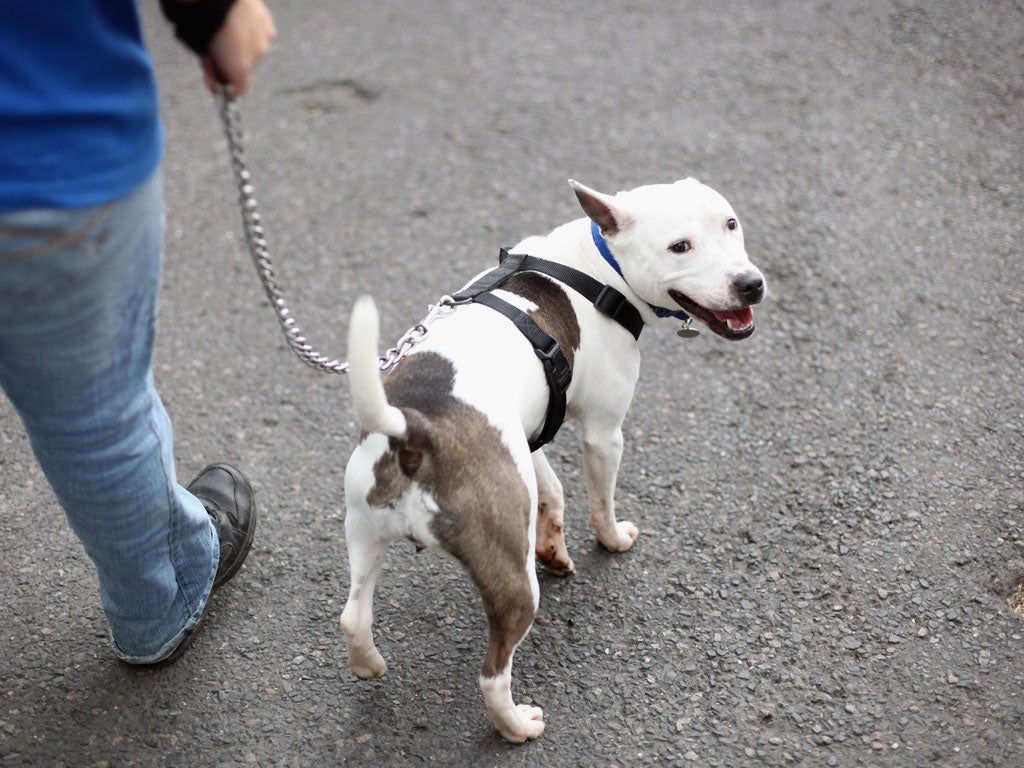Staffordshire terriers: the case for the defence after 14 year-old girl Jade Anderson was savaged to death
We recommend people do their research properly, but Staffordshire terriers are not particularly hard work

Staffordshire terriers are known as the “nanny dog”. They are particularly good around children.
They make wonderful family pets. It’s even incorporated into its breeding standard that they get on well with children.
They were bred to fight other dogs, which is actually why their temperament is so important. Fighting dogs had to be good with people, otherwise they would have been unhandleable. That means when you remove the fighting element, their temperament with people becomes more important.
From the perspective of good breeders of staffies, temperament is everything. People who show their staffies at dog shows know that their dogs always get on well with judges.
We don’t recommend particular breeds, we recommend people do their research properly, but Staffordshire terriers are not particularly hard work. They get on well in most circumstances.
The biggest problem they face is that people look at them and think they are a dog with a hard image. Actually they are a soft breed. But it means people don’t socialise with them properly. They do a disservice to the dog.
There are about a quarter of a million of them on our register in the country, but they’re such a common breed, there are probably more than that unregistered. Of the 200 breeds we recognise, they’re the eighth most popular in the country.
If you ask the people at Battersea, they’ll tell you they are relatively easy to rehome. They are a lovely, lovely breed.
Caroline Kisko is secretary of the Kennel Club
Join our commenting forum
Join thought-provoking conversations, follow other Independent readers and see their replies
Comments
Bookmark popover
Removed from bookmarks